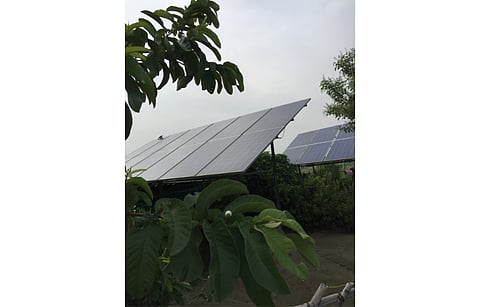

The Ministry of New and Renewable Energy (MNRE) in India has invited feedback on draft standard operating procedure (SOP) document for the implementation of virtual net metering (VNM) and group net metering (GNM) mechanisms to encourage use of rooftop solar among rural households.
While VNM is defined by the MNRE as an arrangement where energy generated by a renewable energy system is exported to the grid via gross meter, GNM on the other hand allows for surplus energy generated to be exported to the grid through net meter.
So far, rooftop solar installations in India are mostly concentrated in urban areas alone where rooftops are made of concrete structure. On the other hand, rural residential rooftops are not sturdy enough to host heavy modules which deprives them from using this clean energy.
The ministry also points out that people in rural areas belong to lower income groups who can't afford capital investment in a solar installation. They also avail low electricity tariff compared to urban regions, hence the low motivation to opt for solar.
To deal with this situation, the ministry proposes to install rooftop solar system on an aggregate basis, and not individually, either on a single piece of land taken on lease or panchayat land. Projects can be installed on RESCO or CPAEX mode with net metering facility for individual household, meaning solar generation from the plant is proportionately adjusted in the electricity bills of each home in the form of either GNM or VNM.
"This mechanism will also improve the electricity supply in the rural area, reduce T&D losses, improve financial position of discoms as the consumption towards subsidized category will reduce, etc. Further, such plants will have additional benefits of low cost due to economies of scale and ease of O&M," according to the draft.
The ministry also believes it will develop economic activities, improve standard of living and also contribute to safety and security of local people.
Last date to submit feedback is August 31, 2022 as per the draft document, available on MNRE's website.
